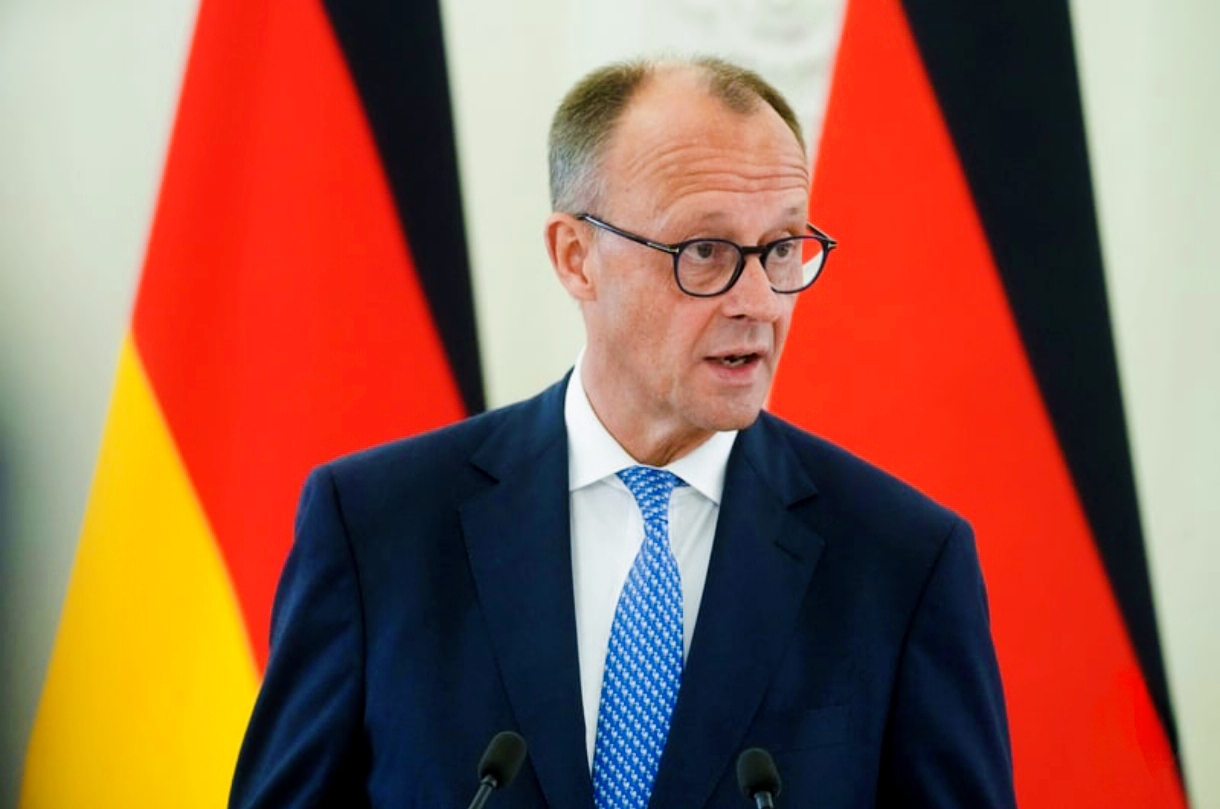German Chancellor Friedrich Merz accused Russia yesterday, Sunday, of being behind a series of unprecedented airspace intrusions by unidentified drones within German airspace, the most notable of which was the flight of several drones over Munich International Airport, leading to the disruption of dozens of flights and stranding more than 10,000 passengers over the past two days.
In statements reported by Reuters, Merz said:
"We believe that Russia is behind most of these drone flights, which were on reconnaissance missions and were not armed."
He added that the frequency of this type of intrusion in European airspace has never been seen before, even compared to periods of tension during the Cold War.
* Ministry of Defense calls for calm: "No real threat"
In a related context, the German Ministry of Defense called for calm, confirming that the drones detected did not pose any direct threat.
Defense Minister Boris Pistorius said in an interview with Handelsblatt:
"I understand the concern, but the drones did not represent a real threat. We have means to deal with these situations, although we have not yet reached the level of capabilities we aspire to."
Pistorius pointed out that the German military assisted the police in monitoring operations, but emphasized that the military cannot intervene in every location where drones appear, calling for enhanced capabilities for the police and critical facilities such as airports and power stations to address this type of aerial threat within specific altitudes.
* Resumption of navigation after nighttime halt
Air traffic at Munich Airport had been halted on Friday evening for the second consecutive night after drones were spotted flying in the airport's airspace during the night, before flights were gradually resumed on Saturday morning.
Units from the German military provided support to local police to monitor and track those drones, while the responsible party has not been officially identified yet.
* A recurring phenomenon in Europe... Denmark denies Russia's involvement
These incidents are not isolated, as airports in Denmark, Norway, and Poland have experienced temporary flight stoppages in recent weeks due to the sighting of unidentified drones in their airspace.
And although Germany accuses Moscow, other countries have denied this hypothesis, with the Danish government stating that it has no evidence to prove Russia's involvement, while Moscow also rejected previous accusations made by Romania and Estonia.
The intrusion of drones over European territories has become a recurring and concerning phenomenon, as suspicions grow about coordinated intelligence activities behind it, amid unannounced tension in European airspace. Meanwhile, as European governments continue their attempts to uncover the perpetrator, it seems that the traditional security infrastructure needs urgent review to confront new threats in the era of unmanned aerial vehicles.

